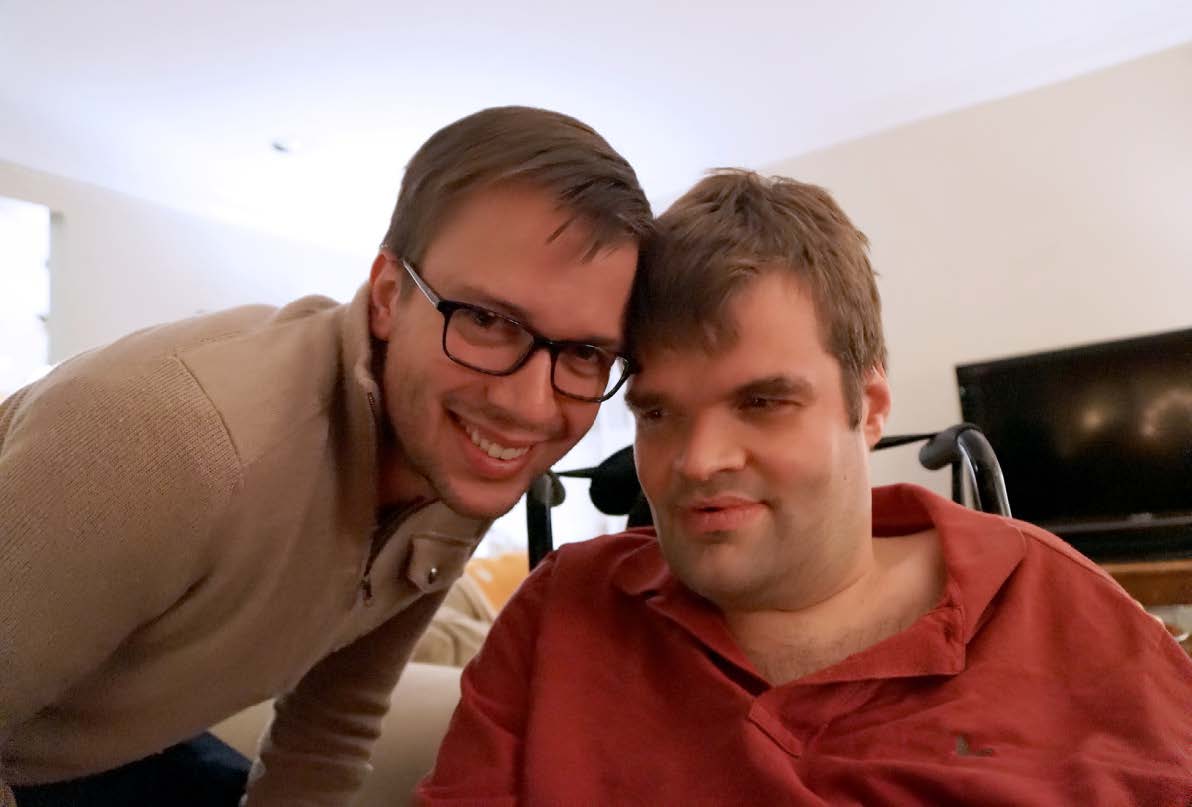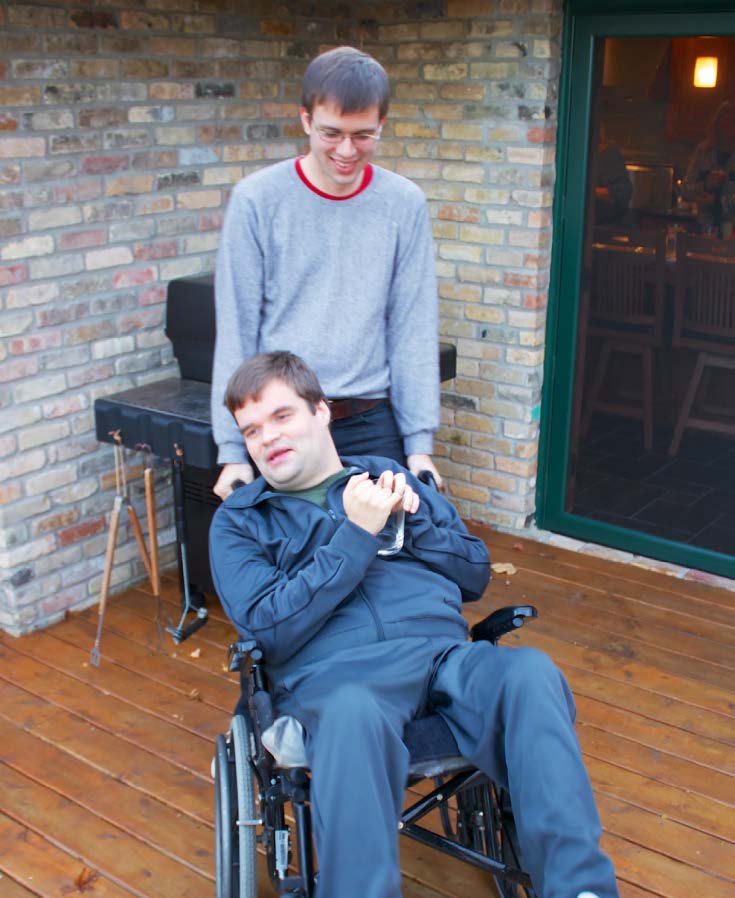
BY ERIC A. SWENSON
On November 1st, 2019, the Georgetown Journal of Poverty Law and Policy hosted its Volume 27 symposium. The event brought together luminaries of disability law, Supreme Court experts, direct service providers, and experts in housing, prisons, and data systems together with self-advocates to discuss the importance of the 1999 Supreme Court decision known as "Olmstead." The opinion has been hailed as the disability community's Brown v. Board of Education. It describes how a state or municipality might, and might not, be guilty of discriminating against people with disabilities who receive public services.
The Journal and I wanted this event to be a complement for a similar event at the Georgia State University. GSU had a two-day event with many speakers discussing this case and its implications. Our goal was to focus on some issues that are more associated with the Journal's mission, which is fighting poverty through the law. With that in mind, we found volunteer speakers focused on the working conditions of direct support professionals and home health care aides; affordable housing shortfalls and related legal issues; and the criminal justice system and disability. Georgetown Law's Supreme Court Institute sponsored a panel to discuss the supreme court case itself, following up on a GSU panel that discussed the representation of Lois Curtis and Elaine Wilson, the plaintiffs in this case. I started this work in December 2017, during my first winter break from Georgetown University Law Center. I was exhausted from exams and could not face sitting at home wondering when the results would come out. Instead, I volunteered at DC's landlord tenant court, talking to real people with problems related to their rented house or apartment.
PHOTOS COURTESY ERIC A. SWENSON

COMMUNITY SPIRIT: Charlie always wanted to know people and make friends. He was disabled but he was curious. He liked being out and about, to see and be seen. In other words, without knowing the law, he wanted to be the embodiment of the Americans with Disabilities Act's Integration Mandate.
I also wanted to read a case or two to keep practicing my new skills. I started by reading the Olmstead v. L.C. Supreme Court case. I knew this case's name before I went to law school because my family celebrated it and talked about how it could affect my brother and our family as well as others in our community. Even so, reading the actual case in the fog of a post-exam winter break was almost surreal.
It did not take more than two minutes after opening the case for something to pop out at me. The attorneys for the respondents (the people with disabilities) and the Solicitor General... they sounded so familiar. They were not my professors, but I recognized Michael Gottesman and Irving Gornstein because they are two of the many rock stars on the Georgetown Law faculty.
The idea started as just a wish to sit down and have a coffee with these two men. I cared because my brother was born with multiple and complex developmental disabilities. Charlie lived with my family until he was 26, which was almost his entire life. When I went away to college, I worked to convince the rest of his supported decision-making team that it was time to help Charlie live in a house of his own. By the time I graduated, he did.
I knew that sometimes he might not have someone to lay down with him in bed late at night to let him know that he was not alone. I also knew that he would have roommates his own age and would not have to live on our parents' schedules. Being integrated in the community meant more than living with our parents for his whole life, and then with my brother or me after our parents died. It also meant more than living in a safe place that addressed his every bodily need. Charlie always wanted to know people and make friends. He was disabled but he was curious. He liked being out and about. He liked to go swimming in a local pool where he could walk in waist-deep water. He liked to go to the local library to rent opera DVDs, or to go out for coffee, to see and be seen. When he was finally out on his own, his support staff figured out how to help him create a small dog-walking business. In other words, without knowing the law, he wanted to be the embodiment of the Americans with Disabilities Act's Integration Mandate.
I doubt that these Georgetown Law professors, even now, know how their work affected my life, my brother's life, and the lives of many others. Maybe some would politely suggest that the Supreme Court gave legal force to the cultural change that was already happening with the deinstitutionalization movement. However, I like to believe that Prof. Gottesman and Prof. Gornstein's advocacy, along with the hard work of the Bazelon Center for Mental Health Law and the many advocates at Atlanta Legal Aid and at Protection and Advocacy organizations all around the country, led to a recognition that the ADA was not being correctly interpreted.
In January 2018, when I took my fledgling idea of a single panel reflecting on the case to the Supreme Court Institute's Director, Prof. Dori Bernstein, she encouraged the idea and gave me some goals. She said something along the lines of: "this sounds good, but why stop with us? A symposium might be a good idea."
Prof. Bernstein and I brainstormed from there. We dreamed big, we shared our sto ries, we strategized. I felt invigorated by our talk and newly confident that there was much more to law school than the exam results I was so anxiously waiting for.
I earned my way onto a journal. I learned more about Olmstead and revisited the project. The Journal formed a new board and my new Editor in Chief, Sarah Hainbach, liked our idea. She and I discussed how prevalent poverty is for some people with disabilities and the fact that fighting poverty tends to help people with disabilities. She trusted me to be the Symposium Editor and we got the support of the other editors to go forward with the plan.
Change takes persistent work. I believe now that the ADA and Olmstead set the table for true belonging for citizens with disabilities, but the work of families still matters. We have love to give and expectations to set, and there is more work to do as advocates. I know a lot of young people who have brothers and sisters with disabilities. Most of us work in whatever ways we can to make things better, whether we are practicing law or medicine or whether we are teaching or going to school or being a good citizen.
In the bad old days before the ADA, parents of children like my brother used to be told: "You should institutionalize him. It will be better for your other children." I hope that now parents are being told, "Do your best to include your disabled child in your family life and in school and help them live a full life in the community. This may well be wonderful for your other children." People need to be given a chance. In any case, the law is clear, but we still have work to do to fulfill Olmstead.
Among the challenges we talked about during this symposium were:
- • The continued affordable housing crisis and the ways that a severe shortage of affordable, accessible, distributed housing leads to unnecessary institutionalization;
- • The need for Bureau of Labor Statistics job category for direct service providers and for better wages to recognize the contributions of the home health care and personal assistant workforce;
- • The need for expanded data to help states know what they are spending on various models of support so that they can find the most efficient and humane methods; and
- • The problem of continued institutionalization of people with disabilities through the use of prisons, jails, and the school to prison pipeline.
Our personal stories are inherently critical to our lives. What we decide to include in our story is critical to who we become as an adult. It is no different for our society. Thankfully, the Congress in 1990 and the Supreme Court in 1999 said that pushing people with disabilities into a setting that is inappropriate for them is illegal discrimination. What community integration means for you might be different than what it meant for Charlie and me. But make no mistake: it is because of my life with Charlie that I worked to make this event happen. Prof. Bernstein told me many times in moments of uncertainty over the last year and a half that this event would not have happened without me. To which I add: "Thank you, Charlie. I am glad you grew up at home with us and lived in a regular neighborhood with the help you needed. I am glad you were my brother." •
ABOUT THE AUTHOR:
Eric Swenson is the Symposium Editor at the Georgetown Journal of Poverty Law and Policy. Eric was born in Minneapolis and has lived in Washington, DC, for nine years. The youngest of three brothers, he is an advocate for people with disabilities. He lived with his brother, Charlie, while growing up and worked to support Charlie's independent lifestyle. Eric is in his last year of law school at Georgetown University Law Center in Washington, DC.